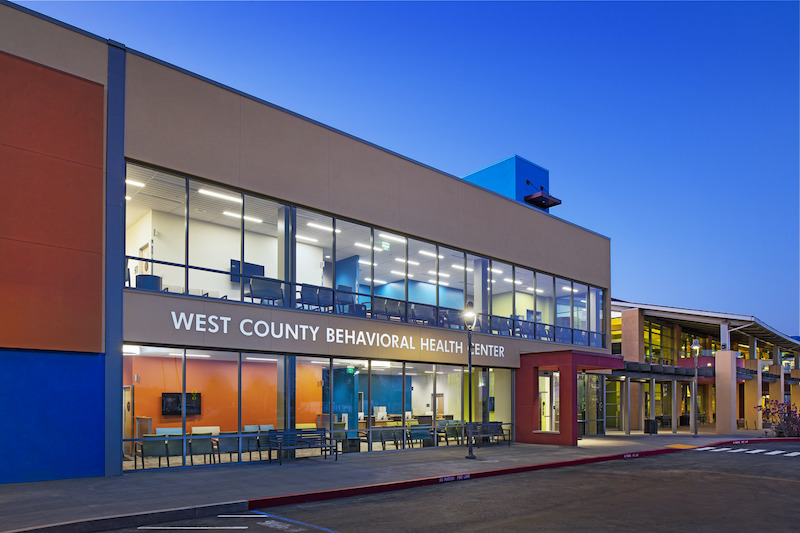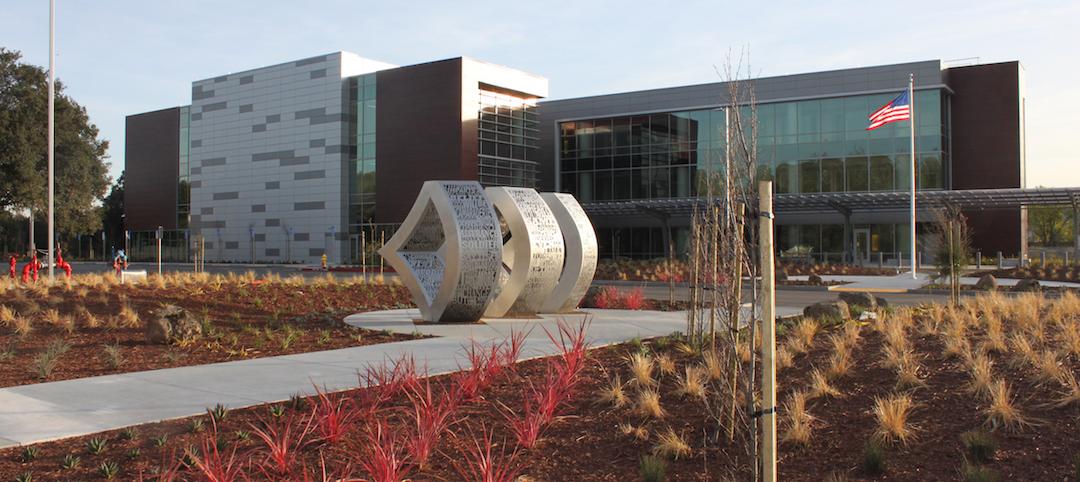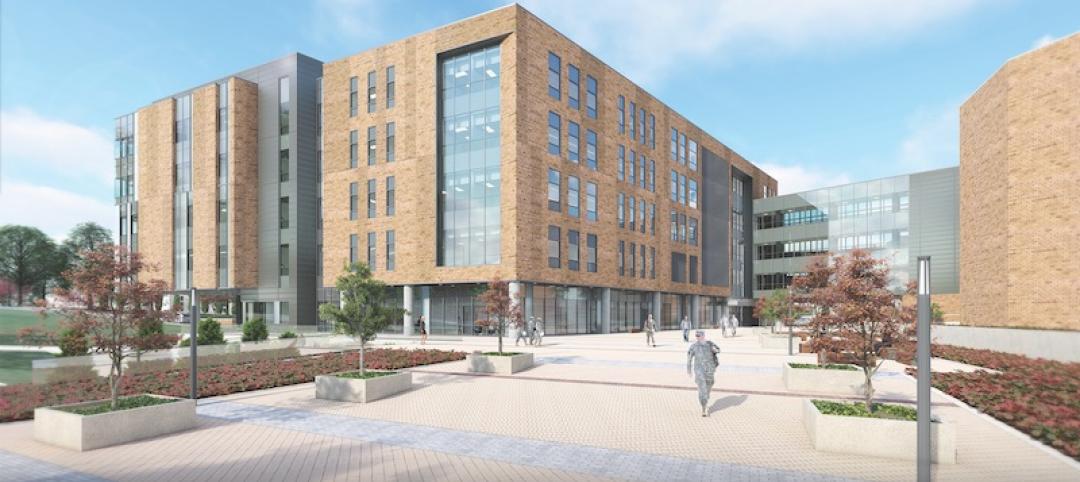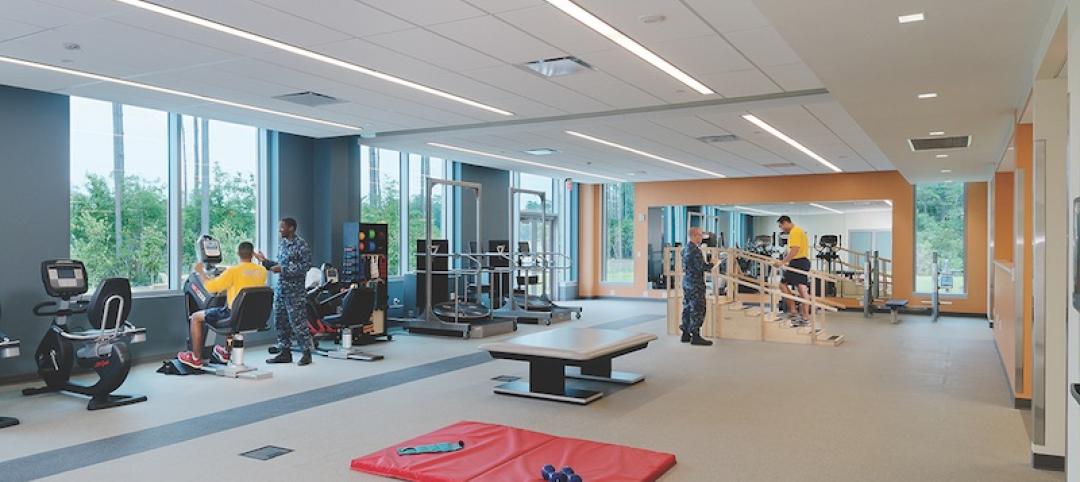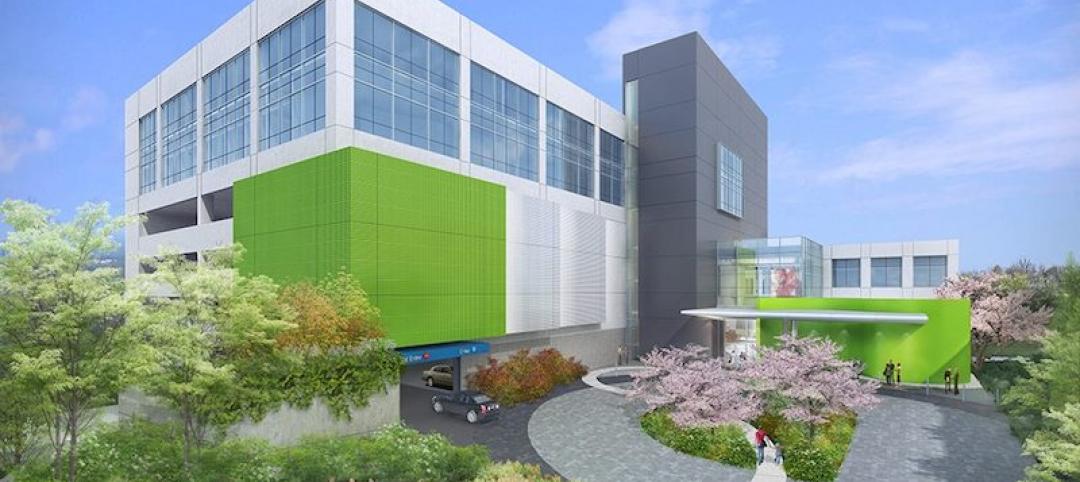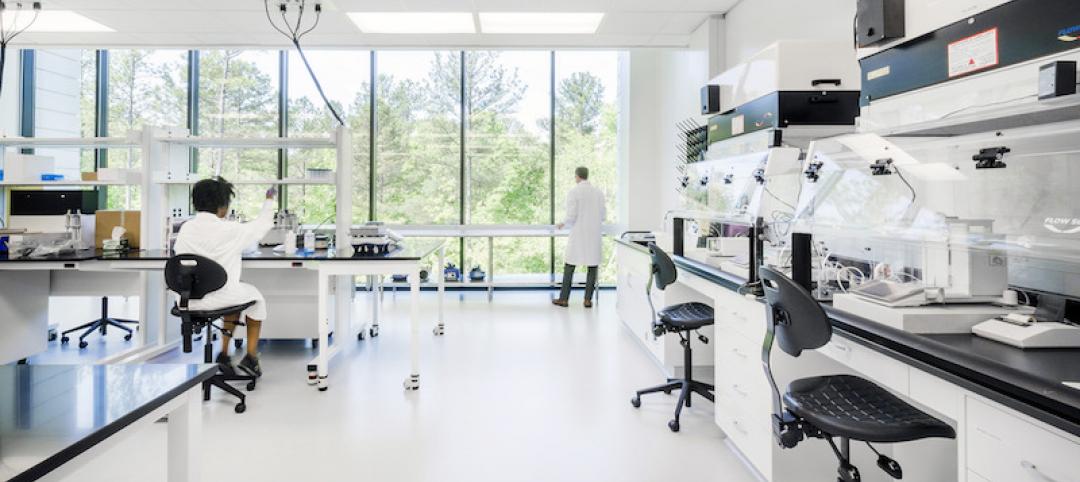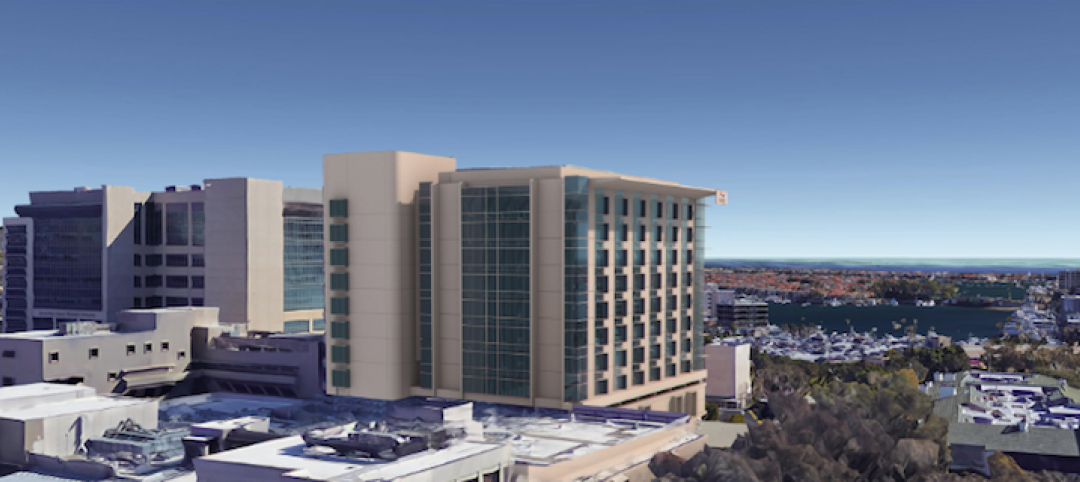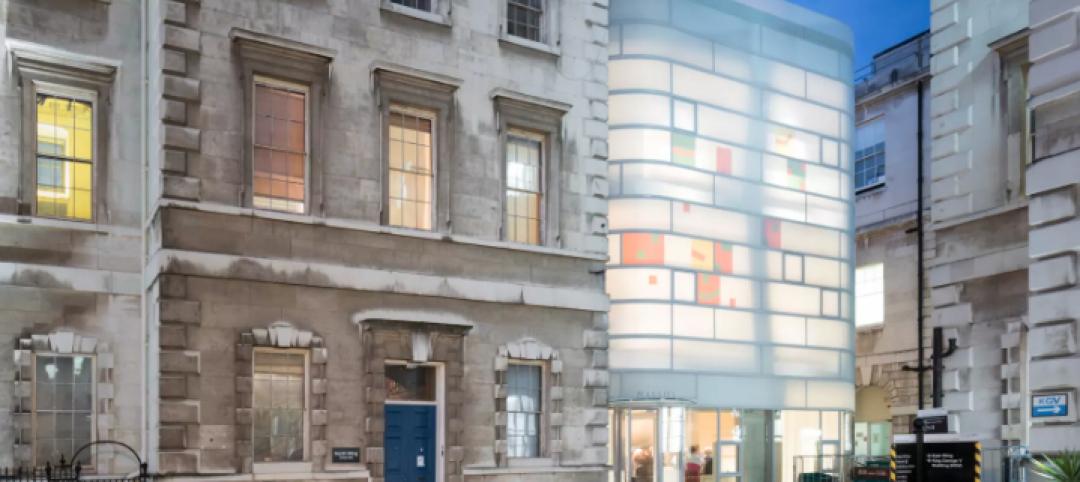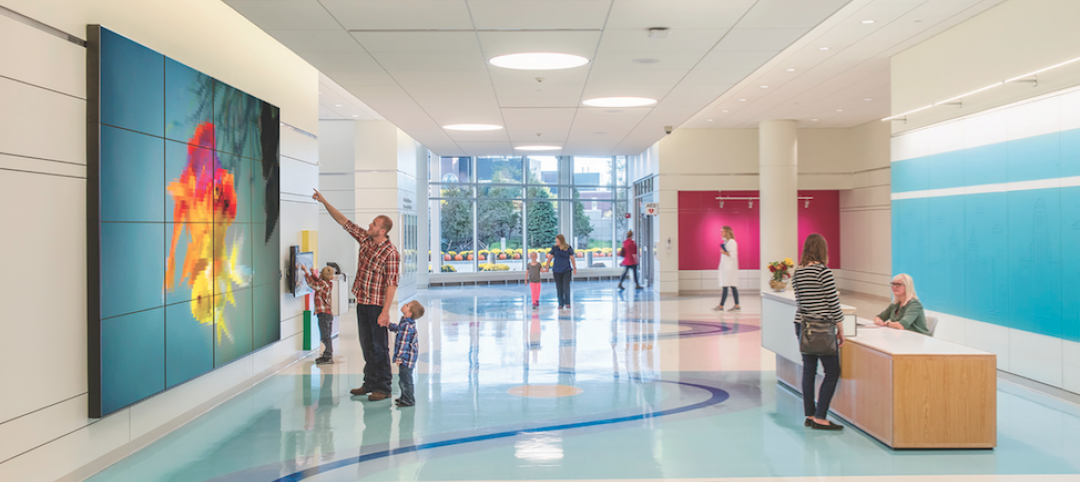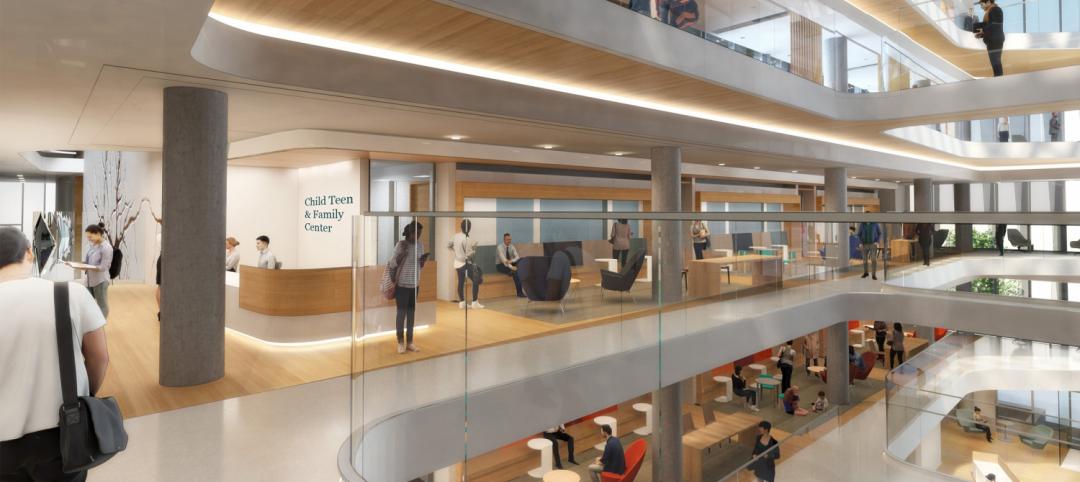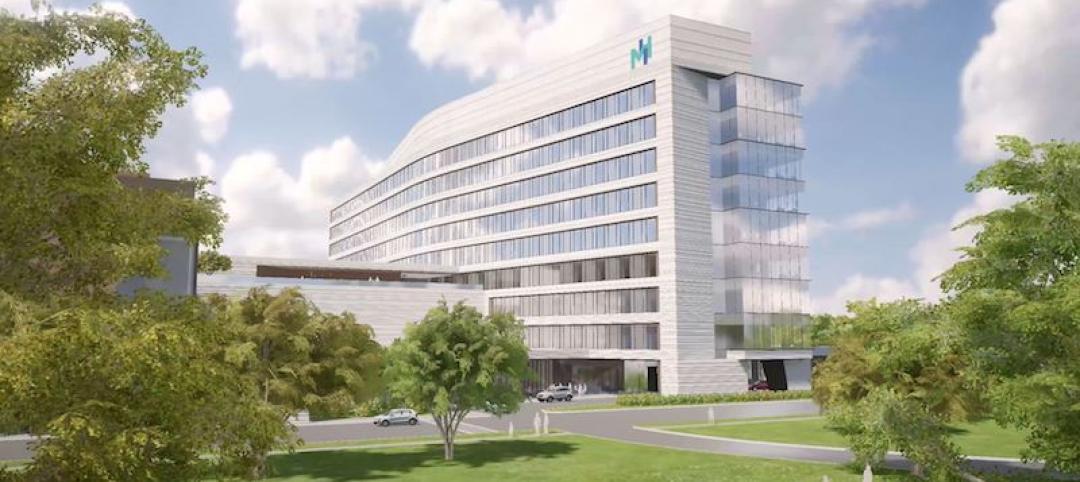During the early stages of the coronavirus pandemic, it became clear rather quickly that the healthcare system in the U.S. wasn’t flexible enough to handle the surge in patient capacity brought on by the spread of COVID-19. As hospitals and other medical facilities rethink their operations, future-ready patient services are likely to be more common.
Case in point: the two-story 20,800-sf West County Behavioral Health Center, which opened on March 9 in San Pablo, Calif. This standalone facility, next to the West County Health Center, moves behavioral health services out of a neighboring building. It has the capacity to treat 2,300 adult and 400 child patients annually.
Although not technically required for mental-health clinics, Contra Costa County decided to make the new building compliant with Office of Statewide Health Planning and Development 3 regulations for Administrative, Building, and MEP codes pertaining to licensed outpatient clinics. The county made this decision at the recommendation of HED, the design firm that co-led this design-build project with Overaa Construction. (HPS Architects completed the initial schematics.)
“HED believes that California’s commitment to regulating design and construction of healthcare buildings through OSHPD results in stronger, more resilient community infrastructure for health,” explains Tim Hurvitz, HED’s Healthcare Studio Leader. “Even given the time constraints and fast pace of the project, this decision was one that not all counties would have made, but we believe will provide great value long into the future.”
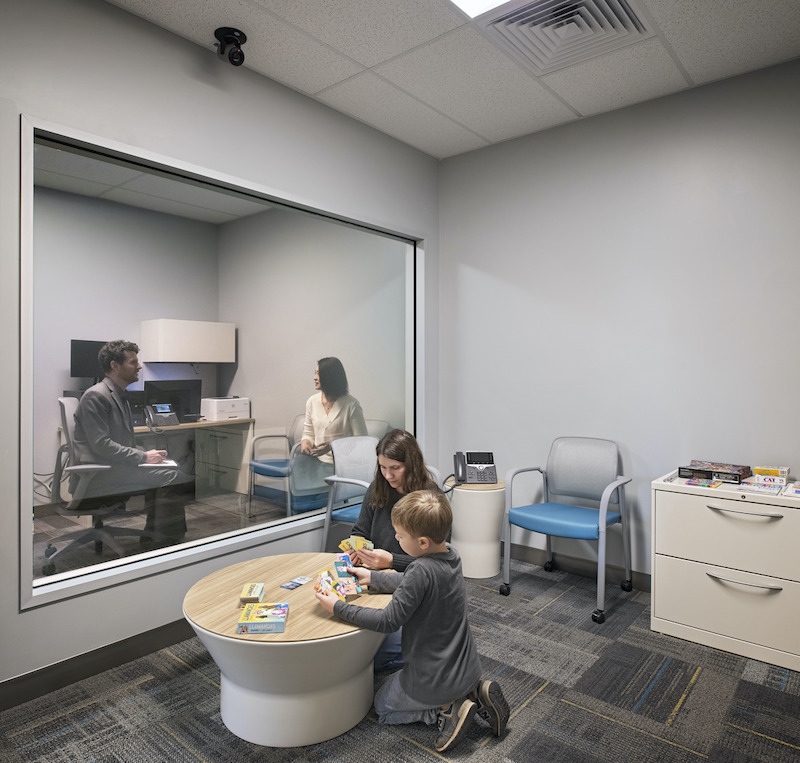
The new facility can treat 2,300 adult and 400 child patients annually.
MEETS THE STATE’S TOUGH SEISMIC REGS
The new building helps alleviate the main health center’s flow of patients for crisis counseling and brief therapy for specific behavioral issues. It also protects patients from contracting contagious illnesses that are often found at typical county health facilities.
Located in an active seismic zone, the building was designed to account for potential future seismic events. For example, a large vertical drift joint was incorporated, and hidden, within the design. The building, which was planned and designed in six months, meets California’s strict seismic requirements.
The LEED Silver-certified facility is distinguished by expansive glazing and colorful walls that are paired with different scales and patterns on the carpeted floors, which offer wayfinding and zoning.
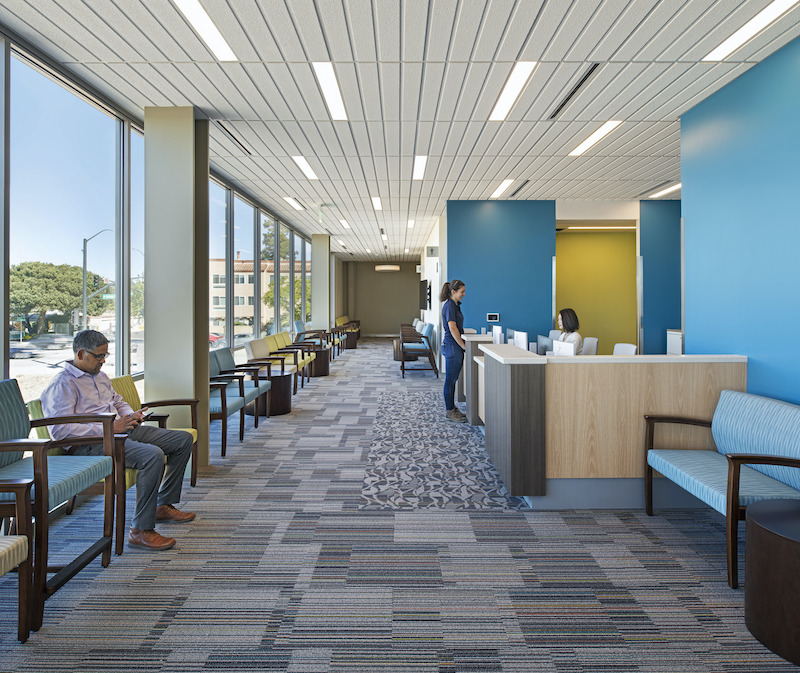
Natural and artificial light combine to illuminate the clinic's lobby.
Related Stories
Healthcare Facilities | Oct 29, 2018
Outpatient clinics bring the VA closer to injured veterans
The Department of Veterans Affairs is making efforts to improve its construction management and align its design guidelines to industry standards.
Healthcare Facilities | Oct 22, 2018
WSP-HKS JV signs deal for U.S. Navy construction work
The contract is not exclusive to the two firms, but it lets NAVFAC assign certain projects to them.
Healthcare Facilities | Oct 12, 2018
N.Y. builder pushes to get military trauma centers up and running quicker
To date, seven NICoE Spirit satellite centers have been built on the grounds of Fort Belvoir in Virginia, Camp Lejeune and Fort Bragg in North Carolina, Fort Campbell in Kentucky, Fort Hood in Texas, Joint Base Lewis-McChord in Washington, and Camp Pendleton in California.
Healthcare Facilities | Sep 7, 2018
Medical office construction isn’t keeping pace with the aging of America
A new Transwestern report suggests a “rethinking” of healthcare delivery approaches that lean heavier on technology.
Engineers | Aug 22, 2018
An electrical engineer’s take on designing successful pharmaceutical lab space
Patrick Licklider, PE, CEM, GGP, LEED AP BD+C, an electrical engineer in Clark Nexsen’s Science + technology practice, shares his perspective on what it takes to successfully design laboratory and manufacturing environments for the fast-changing pharmaceutical and biotech industry.
Healthcare Facilities | Aug 3, 2018
Seismic deadlines approaching for healthcare companies
California hospitals can save money with a holistic approach to retrofit issues.
Healthcare Facilities | Jul 30, 2018
Best in healthcare design 2018: Seven projects win AIA/AAH Healthcare Design Awards
The Steven Holl-designed Maggie’s Centre Barts cancer treatment facility in London highlights the honorees of the AIA Academy of Architecture for Health 2018 Healthcare Design Awards.
Healthcare Facilities | Jul 26, 2018
Healthcare market trends 2018: Health systems get leaner, more resilient
Hospitals set their sights on improving patient convenience and operational efficiency.
Healthcare Facilities | Jul 11, 2018
5 ways design is transforming behavioral healthcare
Circadian lighting, calming materials, and transparency are helping to normalize the patient experience in behavioral healthcare.
Healthcare Facilities | Jul 10, 2018
HGA designs acute care hospital for MetroHealth in Cleveland
The facility’s master plan creates a ‘hospital in a park.’


